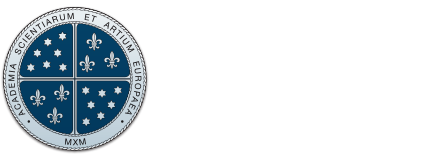Research priorities
high-quality implementation and development of educational activities,
the strengthening of the project and scientific research activities, or performance of applied scientific research activities and transfer of achievements to the environment,
expansion of international cooperation and integration with educational, research, economic, and other institutions,
quality assurance and striving for excellence in education, professional employment, study, and sustainable business.
Alma Mater has an active network of international cooperation with more than 100 academic institutions and over 140 partner institutions from business and public institutions in health and social care and is thus involved in the broadest scientific research cooperation.
In this way, students perform internships under the professional mentoring of experts from practice, representing an infinite potential for scientific research work.
During its operation, Alma Mater Europaea had 73 approved and completed projects, 16 international and 57 national.
At Alma Mater, research work is recognized as a fundamental activity inseparable from pedagogical work.
Our key science/research fields:
a) Social Gerontology: Focus on intergenerational dialogue, active and healthy aging.
b) Physiotherapy: Emphasizing rehabilitation, health improvement, and patient education.
c) Health Sciences: Research in health prevention, care, and medical anthropology.
d) Project Management: Expertise in project planning, leadership, and knowledge transfer.
e) Humanities: Interdisciplinary research in digital humanities, ethics, and cultural studies.
f) Artificial Intelligence: Deep learning technologies, healthcare applications, and ethics.
g) Archival Sciences: Archiving theories, practices, and digital preservation.
h) Sustainable Development: Social responsibility, economic prosperity, and environmental sustainability.
SOME EXCELLENT PROJECTS:
Horizon Europe – Era Talents
TBrainBoost
1.9. 2023 – 31. 8. 2027
About the project: The overall objective of the TBrainBoost is to boost international and intersectoral mobility and improve links between academia, business, and society in healthy aging. TBrainBoost will achieve this through a series of secondments between academic institutions and businesses working in the field of healthy aging and a number of educational activities. Based on our methodology, researchers from this multidisciplinary field will enhance their entrepreneurial skills and competencies while bringing their valuable research expertise to the industry, while R&I talents will gain new insights and skills to create structural changes that are required to set strong foundations for academy-business collaboration for the future. All intersectoral secondments will also put emphasis on benefiting institutions from widening countries, namely empowering talents from Slovenia and Malta with opportunities to learn from colleagues in Germany, the Netherlands, and Belgium. Ultimately, the TBrainBoost project will create a reality where scientists and R&I talents from all parts of the spectrum intuitively share knowledge, experience, and skills to boost their personal profiles, work for the benefit of the aging society, and drive our economies.
ERASMUS+ Strategic partnership (KA2)
Health & Academic Performance with Happy Children
1. 9. 2020 – 31. 8. 2023
About the project: The Health and Academic Performance with Happy Children (HAPHC) proposed here aims to improve learning and promote health. By replacing theoretical activities with a school-based physical activity program within the curriculum (PAAC) the children will attend PA while learning their curriculum. Using schools as an intervention arena reaches all socio-economical layers with the potential of reducing inequality in health. Specifically, the project will evaluate the effects of a large-scale longitudinal intervention. The focus is the following thematic areas, i) learning and cognition, ii) nutrition and growth, including obesity, iii) physical activity and physical health, iv) mental health and quality of life. Both gender pupils and pupils from different socio-economic, and cultural contexts and different health statuses will perform the same PAAC learning through the project. This will empower all pupils to perform physical activity and integrate. About equal number of women and men are represented among the research staff and teachers. The priorities proposed in this project are aimed at improving physical activity and improve learning in primary school students. This project specifically targets knowledge alliance in the area of the development of pedagogical skills for the teachers so that they can implement such programs in their schools. Specifically, all partners in the enterprise will be involved in establishing the activity in children, which has been developed by the co-ordinator in Norway, in their countries (Austria, Slovenia and Belgium), and at several elementary schools, of which some are the partners of the consortium and some will join throughout of the implementation of HAPHC. Each of these countries will recruit additional schools in selected regions to be involved in this project.
Slovenian Research Agency »Public call for the (co)financing of research projects in 2022«
Effects of digitalization in (post) COVID-19 era on quality of life and social inclusion of older adults (DIGOLD)
1. 11. 2022 – 31. 10. 2025
About the project: The COVID-19 pandemic has triggered a series of turbulent changes in society, the extent and direction of which cannot yet be fully identified. Controlling the spread of the COVID-19 disease also included limiting contacts and closing national borders. At the same time, ICT was the safest opportunity to socialize, study, shop, work, and conduct other forms of cooperation. As a result, this COVID-related digitalization has triggered the accelerated use of ICT, especially in certain groups of people, and caused digital exclusion in others. This raises the key question of how broad and universal the adoption of ICT was due to the “pressure” of digitization during COVID-19. Has it led to increased levels of life quality and social inclusion in older adults, and are newly acquired ICT skills be maintained in the post-COVID-19 period as well? Hence, in the current situation, we perceive a unique opportunity to understand how major societal changes affect the lives of older adults in the context of demographic aging and long live society.
CONTACTS
Matej Mertik, Ph.D., coordinator for scientific and research work
matej.mertik@almamater.si
Petra Braček Kirbiš, project office
petra.bk@almamater.si
Anja Inkret, project office
anja.inkret@almamater.si
